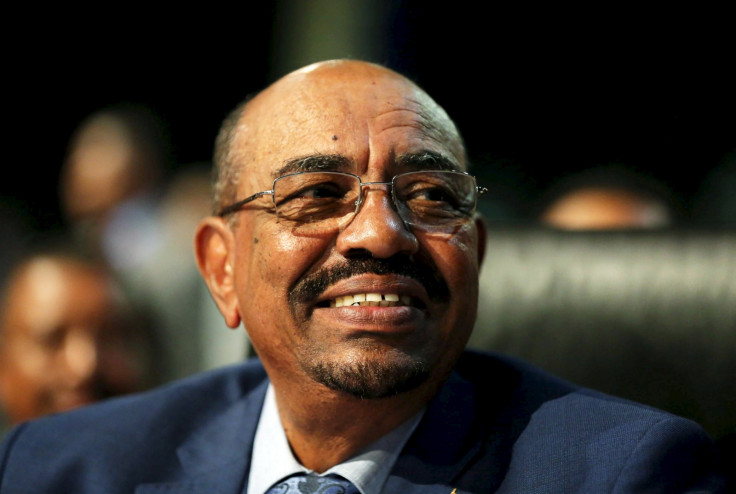Omar al-Bashir: Sudan president's plane takes off despite South African court order

Sudanese officials have assured that president Omar al-Bashir will be returning home "in one or two hours" at the end of an African Union summit in South Africa despite an high court case calling for his arrest.
Bashir is wanted by the International Criminal Court (ICC) for alleged atrocities, including genocide, committed during the Darfur conflict in 2003. A hearing at Pretoria high court was scheduled for Monday 15 June after a civil society organisation filed an application to change a government decision to grant diplomatic immunity to delegates attending the African Union (AU) summit.
The court has to decide whether Bashir has to be handed over to the ICC.
However, the prospect of the Sudanese president being arrested seemed to be fading on 15 June as the country's information minister Ahmed Bilal Osman told al-Jazeera the president will be coming back to his homeland. He said: "The judiciary... does not have policemen. The president is there [in South Africa] and no one is going to arrest him".
The South African government also said it will argue against a court application to force the government to arrest Bashir.
"We will meticulously argue for the application to be dismissed," Mthunzi Mhaga, spokesman for the justice ministry, told local television station ENCA.
Bashir's travels have drawn scrutiny since the ICC charged him with 10 counts including genocide, war crimes and crimes against humanity for sending the army and backing militias in the bloody crackdown in Darfur, a Sudanese region. The UN said fighting in the impoverished Darfur led to the deaths of 300,000 people and created more than two million refugees.
The ICC, which is based in The Hague, issued an arrest warrant for Bashir in 2009. The Sudan president denies the charges.
UN secretary-general Ban Ki-moon told reporters in Geneva that the authority of the ICC must be respected and its decision implemented.
UPDATE:
A high court judge in Pretoria adjourned the court for one hour and ordered the government to confirm it had shut all airports through which Bashir could leave the country.
Judge Mlambo said he wanted a list of ports of entry that have not responded to the court order.
A South African government lawyer at the Bashir case said: "To the best of our knowledge as the government, he is still in the country."
However, a lawyer for the Southern Africa Litigation Centre (SALC), which filed the application to change a government decision to grant diplomatic immunity to delegates attending the African Union (AU) summit, said there was a "high risk" that Bashir could slip out of South Africa via the Waterkloof military base.
The fear is the court will argue Waterkloof is under executive control, so it cannot interfere in military command's orders.
According to multiple Twitter reports, Bashir's plane took off from the military base:
The plane of Sudanese president Omar al-Bashir taking off from Waterkloof airforce base @Netwerk24Berig pic.twitter.com/pnXXNJsVPB
— alet pretorius (@aletpretorius) June 15, 2015
It is unclear whether the Sudanese president is on board:
Photos of Bashir's jet (Sudan01) fleeing from South African air space. Presumably he's aboard, though unconfirmed. https://t.co/FiE3vACsvI
— Geoffrey York (@geoffreyyork) June 15, 2015
© Copyright IBTimes 2025. All rights reserved.






















